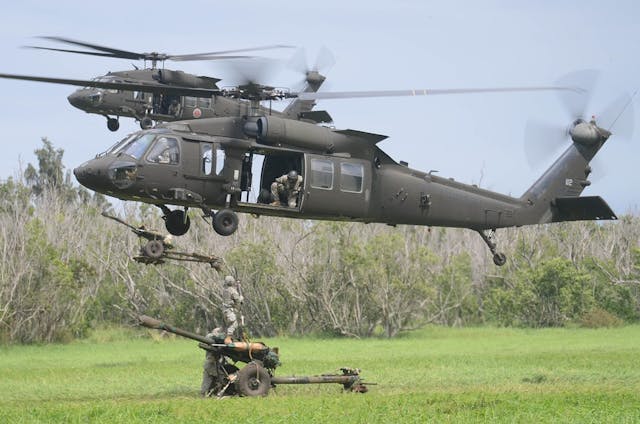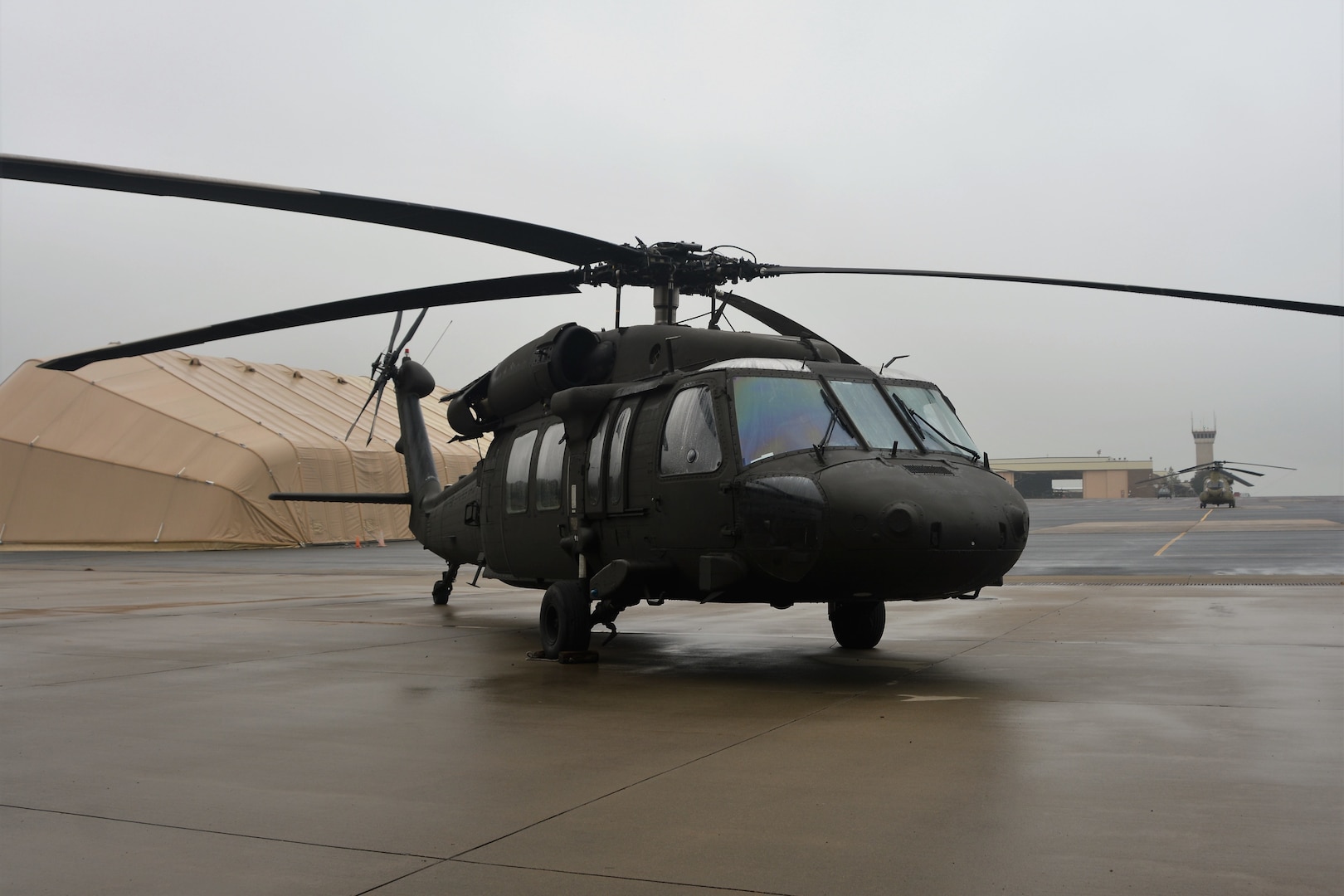UH 60 Helicopter Review: Everything You Need to Know
UH 60 Helicopter Review: Everything You Need to Know
Blog Article
The Effect of Sustainable Practices on the Future of Aircraft Procedures and Emissions Decrease
As the aviation industry encounters boosting scrutiny over its ecological influence, the adoption of lasting methods becomes an important pathway towards future aircraft procedures and discharges reduction. Developments in lasting air travel gas and improvements in hybrid propulsion modern technologies stand at the leading edge of this makeover, encouraging substantial decreases in greenhouse gas emissions. The effective integration of these efforts hinges on a range of aspects, consisting of regulatory structures and industry partnership. The inquiry remains: just how will these developing techniques reshape the dynamics of air travel and add to a more lasting future?

Introduction of Lasting Practices
Lasting methods in aircraft operations incorporate a variety of techniques intended at decreasing ecological effect while maintaining functional performance. These practices are necessary in the aviation sector's commitment to lessening its carbon footprint and sticking to global ecological standards. Trick initiatives consist of optimizing flight paths to reduce fuel intake, boosting maintenance methods to guarantee aircraft run at peak performance, and carrying out sophisticated technologies such as winglets and lightweight products that enhance aerodynamics.

Involving and training staff on sustainability practices also play a crucial duty, fostering a culture of environmental duty within companies. Generally, the assimilation of these sustainable techniques not just helps in reducing emissions however also enhances the long-term practicality of the air travel field, guaranteeing it meets the demands of both clients and regulatory bodies while adding to global sustainability goals.
Ingenious Fuel Alternatives
Many cutting-edge gas choices are becoming pivotal solutions to decrease the aviation industry's reliance on conventional nonrenewable fuel sources. Among these alternatives, Sustainable Aeronautics Gas (SAFs) have actually acquired significant attention as a result of their possible to reduce lifecycle greenhouse gas discharges by as much as 80% compared to conventional jet fuels. SAFs are stemmed from various feedstocks, consisting of waste oils, farming deposits, and also algae, making them a flexible choice for the industry.
An additional appealing alternative is hydrogen gas, which, when made use of in fuel cells, generates just water vapor as a byproduct. Additionally, electrical propulsion systems are being checked out, leveraging battery technology to power airplane.
Last but not least, biofuels stemmed from biomass are being investigated, supplying a sustainable option that can be combined with conventional fuels. Collectively, these cutting-edge fuel options represent a vital step toward attaining a sustainable air travel ecological community, aligning with worldwide exhausts reduction targets and improving the market's ecological stewardship.
Technical Advancements in Air Travel

How can technical developments improve the future of aviation? The assimilation of advanced innovations is pivotal in transforming airplane operations, improving performance, and reducing discharges. Technologies such as hybrid and electrical propulsion systems go to the forefront, appealing substantial reductions in fuel usage and greenhouse gas exhausts. These systems leverage improvements in battery modern technology and energy administration, making it possible for airplane to operate with a lower environmental footprint.
In addition, the execution of sophisticated materials, such as light-weight composites, adds to enhanced the rules of aerodynamics and fuel performance. The usage of expert system and machine discovering in flight procedures enhances route preparation and reduces gas burn by making it possible for real-time changes based upon weather and web traffic conditions. In addition, the development of independent and remotely piloted airplane systems stands to revolutionize freight and passenger transport, possibly enhancing performance while reducing a fantastic read human mistake.
Additionally, lasting aviation innovations, consisting of sophisticated air traffic administration systems, can simplify operations and minimize blockage, bring about lower exhausts during flight. These improvements jointly represent a standard change in aviation, guaranteeing a future where sustainability and functional performance are intertwined, therefore sustaining the market's dedication to lowering its environmental effect.

Governing Structure and Conformity
Taking into account the expanding emphasis on environmental stewardship within the aviation industry, the regulative framework regulating airplane operations is progressing to promote lasting methods. Regulative bodies, such as the International Civil Aeronautics Company (ICAO) and different national air travel authorities, are presenting rigid standards aimed at minimizing discharges and boosting operational performance.
These guidelines often consist of the fostering of Sustainable Aeronautics Gas (SAF), which has been acknowledged as a vital element in accomplishing reduced carbon footprints. look at more info Compliance with these regulations calls for airlines to implement operational practices and sophisticated modern technologies, such as optimized flight paths and improved air web traffic management, to decrease fuel intake.
Furthermore, the enforcement of emissions trading plans and carbon offsetting campaigns is becoming significantly prevalent, engaging airlines to keep an eye on and report their emissions properly. Non-compliance can result in considerable penalties, therefore pressing operators to prioritize sustainability in their business models.
Ultimately, the evolving regulative landscape not just drives development and financial investment in green modern technologies yet additionally cultivates a society of responsibility within the air travel market. As these frameworks remain to develop, the concentrate on lasting techniques will be indispensable to attaining the sector's lasting ecological goals.
Future Trends in Aircraft Operations
As the aeronautics market adapts to an increasingly strict governing environment, future trends in aircraft procedures are readied to concentrate on ingenious services that even more boost sustainability and efficiency - uh 60. Key advancements will likely consist of the adoption of innovative air web traffic management systems, which utilize real-time data and synthetic knowledge to enhance trip courses, lowering gas consumption and emissions
Another significant fad is the increased integration of sustainable air travel fuels (SAFs) These options to traditional jet fuel, stemmed from renewable resources, can significantly lower lifecycle greenhouse gas emissions. The industry's commitment to SAFs will likely increase as airline companies team up with gas manufacturers to make certain schedule and cost-effectiveness.
In addition, check my site the press towards electrification and hybrid propulsion systems is acquiring momentum. Emerging airplane layouts will certainly integrate these innovations, providing quieter and much more efficient procedures, specifically for short-haul flights.
Conclusion
The fostering of sustainable aeronautics gas, combined with innovations in hybrid and electric propulsion systems, is crucial for minimizing lifecycle greenhouse gas emissions. Maximizing flight courses and welcoming ingenious innovations add to a quieter and a lot more ecologically pleasant air travel market.
Technologies in lasting aviation gas and advancements in hybrid propulsion modern technologies stand at the forefront of this improvement, encouraging considerable decreases in greenhouse gas emissions.Many cutting-edge fuel options are arising as pivotal services to minimize the aeronautics industry's reliance on standard fossil gas - uh 60. Among these alternatives, Sustainable Air travel Gas (SAFs) have actually gained significant focus due to their possible to lower lifecycle greenhouse gas exhausts by up to 80% contrasted to traditional jet fuels.One more considerable pattern is the boosted integration of sustainable air travel fuels (SAFs) The adoption of sustainable aeronautics fuels, coupled with innovations in electrical and hybrid propulsion systems, is necessary for decreasing lifecycle greenhouse gas discharges
Report this page